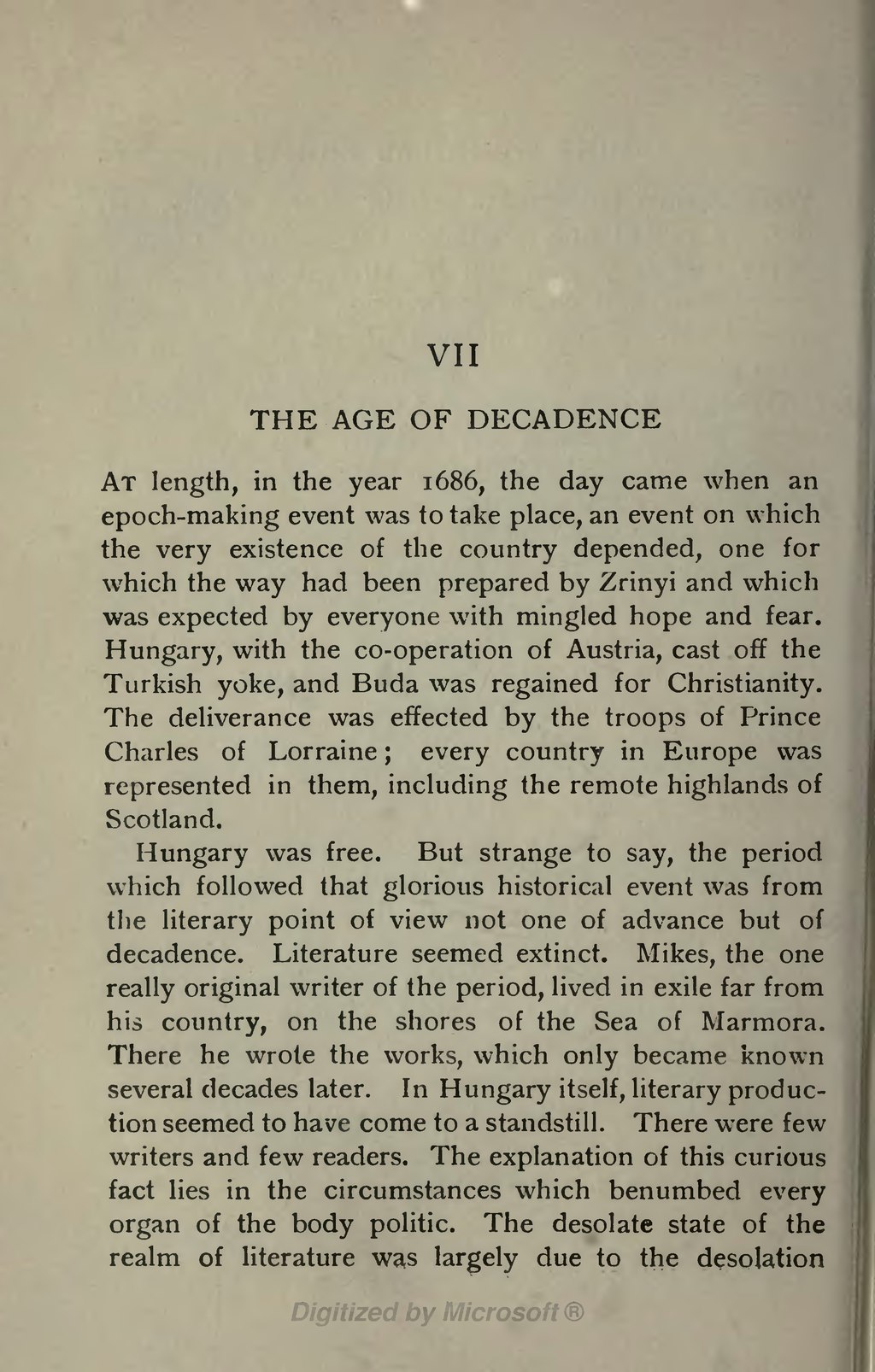VII
THE AGE OF DECADENCE
At length, in the year 1686, the day came when an epoch-making event was to take place, an event on which the very existence of the country depended, one for which the way had been prepared by Zrinyi and which was expected by everyone with mingled hope and fear. Hungary, with the co-operation of Austria, cast off the Turkish yoke, and Buda was regained for Christianity. The deliverance was effected by the troops of Prince Charles of Lorraine; every country in Europe was represented in them, including the remote highlands of Scotland.
Hungary was free. But strange to say, the period which followed that glorious historical event was from the literary point of view not one of advance but of decadence. Literature seemed extinct. Mikes, the one really original writer of the period, lived in exile far from his country, on the shores of the Sea of Marmora. There he wrote the works, which only became known several decades later. In Hungary itself, literary production seemed to have come to a standstill. There were few writers and few readers. The explanation of this curious fact lies in the circumstances which benumbed every organ of the body politic. The desolate state of the realm of literature was largely due to the desolation

